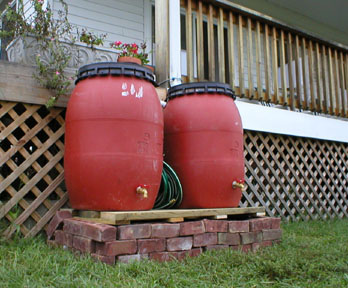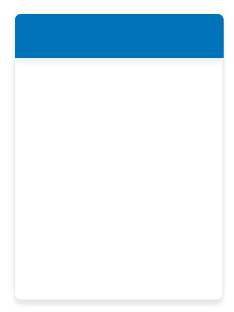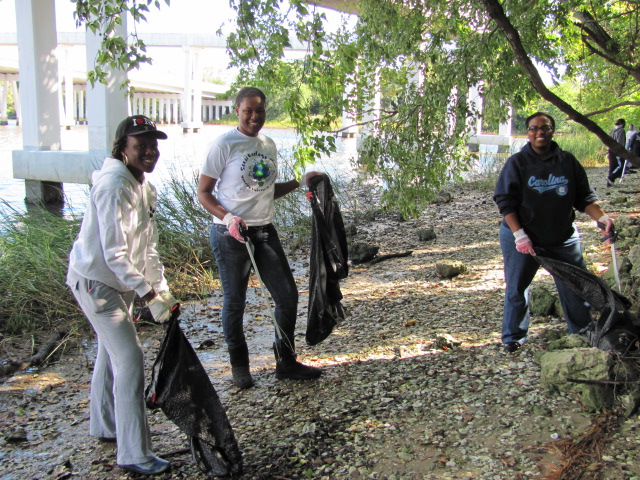Rain Barrels & Harvesting Rain Water
Clean Virginia Waterways is a leader in water conservation through the use of rain barrels. More than 160 nonprofit organizations and local governments were trained by CVW to put on Rain Barrel Workshops in their communities. Tens of thousands rain barrels are deployed across Virginia thanks to CVW and its partners. While CVW no longer provides hands-on rain barrel workshops, and we no longer provide barrels and rain barrel kits, we will ALWAYS be a strong advocate for everyone to install a rain barrel in their yard!
Positive Reasons to have Rain Barrels: |
 |
|---|
Your plants will love it
Rainwater has no added chemicals, is usually soft and free of dissolved minerals. This untreated water is great for your indoor plants, your garden and lawn, washing your car, and your birdbaths. (Water that is "softened" with chemicals is bad for plants due to salts that are dissolved in the water.)You will be conserving water
Drought or no drought, we should all conserve water. Our groundwater and fresh water supplies are limited. So, as more people are using groundwater, we need to use it responsibly.You will be reducing runoff
If your roof's area is 1,200 square feet (30 x 40 feet), then 1 inch of rain equals more than 700 gallons! You can harvest this rainwater which otherwise would be lost to runoff. To harvest even more rainwater, you can connect several barrels in a series and have 100s of gallons of water capacity.
· Runoff can cause erosion, plus carry fertilizers, pesticides and other chemicals into streams where they are very damaging. Rain barrels help you manage peak storm runoff.
· An overflow hose, located at the top/back of the barrel, designates the direction of excess water to flow. It can be replaced with a hose of longer lengths, to divert overflow to a garden or distant runoff area.Convenience
Water from rain barrels is easily accessible for various garden chores.
(Also, if you depend on electricity to run your well pump, this water is handy in power outages.)
Save Money
If you get your water from the town, why pay to water your gardens when you can collect hundreds of gallons at no cost? Also, if you depend on electricity to run your well pump, water in rain barrels is handy in power outages.Safety Notes
It is recommended that you cover the top of the rain barrel with metal hardware cloth or something similar to keep small children, pets and wildlife from falling into the barrel. As an alternative, you can drill large holes (1 to 2 inches in diameter) in the rain barrel’s lid. This will allow water to enter the barrel, but will prevent animals or children from falling through the screen.Avoid Mosquitoes
PLEASE do NOT breed mosquitoes in your rain barrels! Always cover the barrel with fine screening to keep mosquitoes out. If you empty your barrels every 7 days, you will not have a mosquito problem--remember, rain barrels are not meant to be long-term storage. If you are concerned, use small portions of Mosquito Dunks (available in hardware stores and on-line). These dunks slowly release the active ingredient, Bacillus thuringiensis (Bt) that kills mosquito and black fly larvae for 30 days or more, and will not effect plants, people or wildlife. The dunks are made to cover 100 square feet each, so you do not have to use an entire dunk in a barrel.
OVERFLOW -- you must have an overflow hole on your barrel that will keep the water level below the screen. If your rain barrel is full to the top, mosquitoes can breed in the water between the screen and the top of the water surface. Mosquito control employees in Henrico County, VA found that Asian Tiger Mosquitoes had entered a rain barrel by way of a hose that was attached to a manufactured rain barrel. So it is recommended that you attach screening to the end of hoses that are attached to your overflow. One fellow we know put a tiny screen onto the overflow fixture using a hose clamp.
CVW no longer provides Rain Barrel Workshops or kits (barrels, faucets, overflows, etc.).
How to make a rain barrel from a food-grade barrel: Directions here







